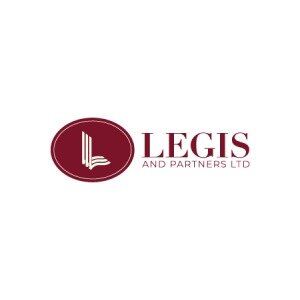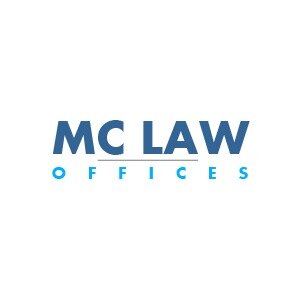Best Patent Lawyers in Port Louis
Share your needs with us, get contacted by law firms.
Free. Takes 2 min.
List of the best lawyers in Port Louis, Mauritius
About Patent Law in Port Louis, Mauritius
Patent law in Port Louis, Mauritius, falls under the jurisdiction of the Industrial Property Act. This act provides legal recognition and protection for inventions, giving inventors the exclusive right to exploit their innovations for a set period. Patents are crucial for fostering innovation and ensuring that inventors can reap the rewards of their ingenuity. The Mauritius Industrial Property Office (MIPO) is the key agency responsible for overseeing patent applications and registrations.
Why You May Need a Lawyer
There are several scenarios where legal advice in the realm of patents might be necessary:
- Drafting and Filing Patent Applications: Patent applications need to be meticulously drafted to meet specific requirements and cover all potential uses and variations of the invention.
- Patent Searches: Before filing, it's crucial to perform thorough searches to ensure your invention is unique and does not infringe on existing patents.
- Enforcement and Defense: If your patent rights are being infringed upon, or if you are accused of patent infringement, legal representation is essential.
- Patent Licensing and Assignments: Legal help is often needed to negotiate and draft licensing agreements or assign patent rights to another entity.
- International Patents: Securing protection in multiple countries involves navigating different legal systems and requirements, necessitating legal expertise.
Local Laws Overview
Several aspects of local laws are particularly relevant to patents in Port Louis, Mauritius:
- Patentability: For an invention to be patentable, it must be new, involve an inventive step, and be capable of industrial application.
- Duration: A patent in Mauritius is valid for 20 years from the filing date, subject to the payment of annual maintenance fees.
- Filing Requirements: The application must include a detailed description of the invention, claims defining the technical features, and, if applicable, drawings.
- Examination Process: Patents undergo formal and substantive examinations to ensure compliance with patentability requirements.
- Opposition: Interested parties are allowed to oppose the grant of a patent within a defined period, necessitating possible legal defense.
Frequently Asked Questions
What is a patent?
A patent is a legal document issued by the government granting an inventor exclusive rights to their invention for a specified period, usually 20 years.
Who can apply for a patent?
Any individual or company can apply for a patent in Mauritius, either alone or jointly with others, provided they are the inventor or have the rights to the invention.
What inventions can be patented?
For an invention to be patentable, it must be new, involve an inventive step, and be capable of industrial application. Purely abstract ideas, natural discoveries, and certain business methods are not patentable.
How long does the patent process take?
The time frame can vary, but typically, it may take several years from the filing date to the grant of a patent, depending on the complexity of the invention and workload of the patent office.
How much does it cost to apply for a patent?
The cost of applying for a patent includes filing fees, examination fees, and attorney fees if you hire a lawyer. Additional costs may include annual maintenance fees.
How can I ensure my invention is not already patented?
Conducting a thorough patent search is crucial to ensure your invention is unique. You can search through the MIPO database, international patent databases, or hire a professional patent attorney to conduct the search.
What happens if my patent is infringed?
If someone uses your patented invention without permission, you can take legal action to enforce your rights. This usually involves negotiations or filing a lawsuit for patent infringement.
Can I patent an invention jointly with others?
Yes, a patent can be jointly owned by two or more individuals or entities, provided they have all contributed to the invention.
Can I license my patent to others?
Yes, you can license your patent, allowing others to use your invention in exchange for royalties or other compensation.
What is the role of a patent attorney?
A patent attorney helps with drafting applications, conducting searches, responding to patent office actions, litigating disputes, and providing general advice on patent strategy and management.
Additional Resources
Several resources can be helpful for those seeking legal advice on patents in Port Louis, Mauritius:
- Mauritius Industrial Property Office (MIPO): The primary agency overseeing patent registration and enforcement in Mauritius.
- World Intellectual Property Organization (WIPO): Provides international resources and guidelines on patent law.
- Mauritius Chamber of Commerce and Industry (MCCI): Offers services and information related to patents and intellectual property.
- Local Law Firms: Many law firms in Mauritius specialize in intellectual property law and can provide expert guidance on patents.
Next Steps
If you need legal assistance with patents in Port Louis, Mauritius, consider taking the following steps:
- Consult a Patent Attorney: Engage an attorney specializing in patent law to guide you through the process.
- Gather Documentation: Compile all necessary information and documentation regarding your invention.
- Conduct a Patent Search: Ensure your invention is unique by conducting a thorough patent search.
- File Your Application: With the help of your attorney, file a well-drafted patent application with MIPO.
- Stay Informed: Keep abreast of any requirements or deadlines, such as annual maintenance fees, to maintain your patent rights.
By following these steps and seeking professional legal advice, you can navigate the patent process in Mauritius effectively and protect your valuable inventions.
Lawzana helps you find the best lawyers and law firms in Port Louis through a curated and pre-screened list of qualified legal professionals. Our platform offers rankings and detailed profiles of attorneys and law firms, allowing you to compare based on practice areas, including Patent, experience, and client feedback.
Each profile includes a description of the firm's areas of practice, client reviews, team members and partners, year of establishment, spoken languages, office locations, contact information, social media presence, and any published articles or resources. Most firms on our platform speak English and are experienced in both local and international legal matters.
Get a quote from top-rated law firms in Port Louis, Mauritius — quickly, securely, and without unnecessary hassle.
Disclaimer:
The information provided on this page is for general informational purposes only and does not constitute legal advice. While we strive to ensure the accuracy and relevance of the content, legal information may change over time, and interpretations of the law can vary. You should always consult with a qualified legal professional for advice specific to your situation.
We disclaim all liability for actions taken or not taken based on the content of this page. If you believe any information is incorrect or outdated, please contact us, and we will review and update it where appropriate.











